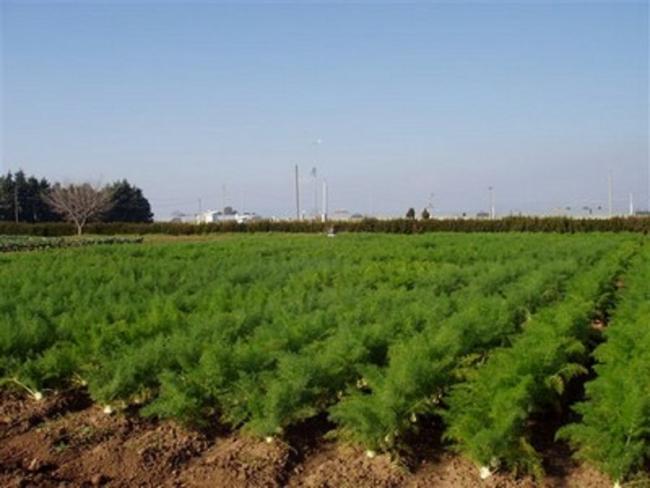Fostering the reuse of fennel waste for the development of bioeconomy useful to the agricultural companies

The aim of the FENNEL Project is to enhance the large waste biomass from fennel processing.
The project idea stemmed from the need - manifested by the agricultural sector protagonist of the cultivation, processing and marketing of fennel - to transform a waste product with a high environmental impact into an economic resource for all those companies for which, on the other hand, represents a huge cost for disposal. Research lines will therefore be launched to test the possibility of using about 95% of waste biomass for the production of nutraceutical supplements, nutritional drinks, fiber-rich dietary bars.
Under the FENNEL Project, in response to the requests expressed by the entire fennel production chain, research lines will be activated aimed at enhancing the bioactive extract from such waste, formulating nutraceutical supplements such as gastro-resistant capsules and functional beverages.
In this way, waste biomass can be further exploited, turning from waste into an economic resource of significant value.
In detail, waste biomass will be processed for quality-quantitative determination and the extraction of nutraceutical substances.
New processing lines will be tested to facilitate the processing of waste.
In Campania, where the significant production share of 1,348 t/year (source ISTAT 2017) is reached, the most produced agro-industrial waste biomass is represented by the non-edible parts of fennel: only 40% in the weight of the fruit represents the edible part, while the remaining 60% is treated as a special waste to be disposed of, constituting a costing for the entire supply chain. However, these biomass, considered waste material, are an attractive source of biomolecoly with wide application in various industrial sectors.
In the case of the FENNEL Project, innovation aims to promote a sustainable agricultural model, from an environmental, economic and social point of view. The research focused on the enormous environmental impact of the massive waste biomass of fennel processing: the FENNEL Project, in fact, aims to identify an innovative rationalization of harvesting operations, the creation of new products recovered from waste, the improvement of the eco-compatibility of the production process thanks to the introduction of valuable materials in the company's crop system, the complete recovery of waste by eliminating the problem of waste. The innovative model will be offered to all companies in the supply chain.
The success of the FENNEL Project will provide agricultural companies with the opportunity to achieve important potential benefits, in terms of their impact on competitive structures as well as the ability to improve economic and environmental performance. Agricultural companies tend to gain their competitive advantage and retain it over time from the attacks of competitors with both financially and temporal sustainable strategies, which are geared towards two objectives, closely related:
(a) building a cost advantage over competitors;
(b) the construction of an advantage in differentiating its products from the competition.
Reducing production costs, through economies of scale or experience such as recycling production waste, will allow the product to be placed at a lower price level than competitors.
| Titolo/Descrizione | Url | Tipologia |
|---|---|---|
|
Sito web del progetto
|
Sito web
|
|
|
Pagina Facebook del progetto
|
Link ad altri siti che ospitano informazioni del progetto
|
|
|
Video di presentazione progetto all’expò di Dubai 2022
|
Materiali utili
|
|
|
Video Intervista dr.ssa De Pascale, responsabile scientifico progetto
|
Link ad altri siti che ospitano informazioni del progetto
|
|
|
Video intervista alla Dottoressa Stefania Da Pascale
|
Materiali utili
|
|
|
Video della conferenza finale del progetto
|
Materiali utili
|
|
|
Articolo su Colture Protette
|
Materiali utili
|
|
|
Articolo su AgroNotizie
|
Materiali utili
|
|
|
Articolo su COINNOVA
|
Materiali utili
|
|
|
Articolo su Georgofili INFO
|
Materiali utili
|
|
|
Articolo su Teatro Naturale
|
Link ad altri siti che ospitano informazioni del progetto
|